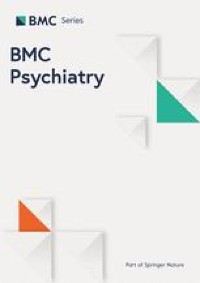
Epidemiology of gaming disorder and its effect on anxiety and insomnia in Chinese ethnic minority adolescents – BMC Psychiatry
Background The growing popularity and frequency of online game use have resulted in a large number of studies reporting various mental problems associated with game abuse in adolescents. In this article, we examined the prevalence of gaming disorder (GD) and explored the associations of GD with anxi…
- Wei, Q., Zhang, S., Pan, Y., Hu, H., Chen, F., Yin, W., Lin, Q., Pan, S., Tham, C., & Wu, J. (2022). Epidemiology of gaming disorder and its effect on anxiety and insomnia in Chinese ethnic minority adolescents. BMC Psychiatry, 22(1), 260. https://doi.org/10.1186/s12888-022-03894-3
背景
オンラインゲームの普及と利用頻度の増加により、青少年におけるゲームの乱用に関連したさまざまな精神的問題が報告されるようになってきている。本稿では、中国の少数民族の青少年におけるゲーム行動症(GD)の有病率を調べ、GDと不安や不眠症状との関連性を探った。
調査方法
合計1494名の学生が、Problematic Online Gaming Questionnaire Short-Form (POGQ-SF)、Generalized Anxiety Disorder 7-item questionnaire (GAD-7) およびAthens Insomnia Scale (AIS) に回答した。ゲーム行動症と不安・不眠症の関連を探るために、カイ二乗分析および二項ロジスティック回帰分析を行った。
結果
合計356人(23.83%)がゲーム行動症であると回答した。カイ二乗分析の結果、性別、学年、両親の婚姻状況、運動状況がGDと有意に関連することが示された。二項ロジスティック回帰分析の結果、GDを持つ人は持たない人に比べて、不安や不眠のリスクが有意に高いことが示された。
結論
GDの発症率は高く、不安・不眠とGDの間には正の相関があることがわかった。したがって、GDに罹患した人には特別な注意を払う必要がある。GDが不安や不眠症に及ぼす悪影響に取り組む価値がある。
